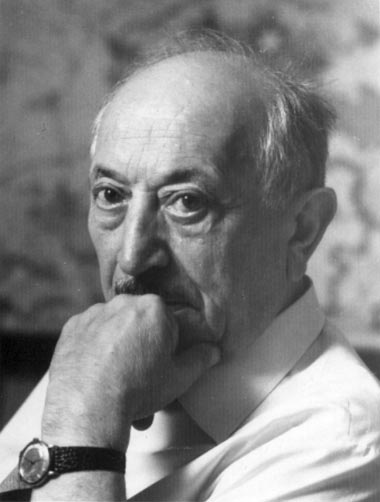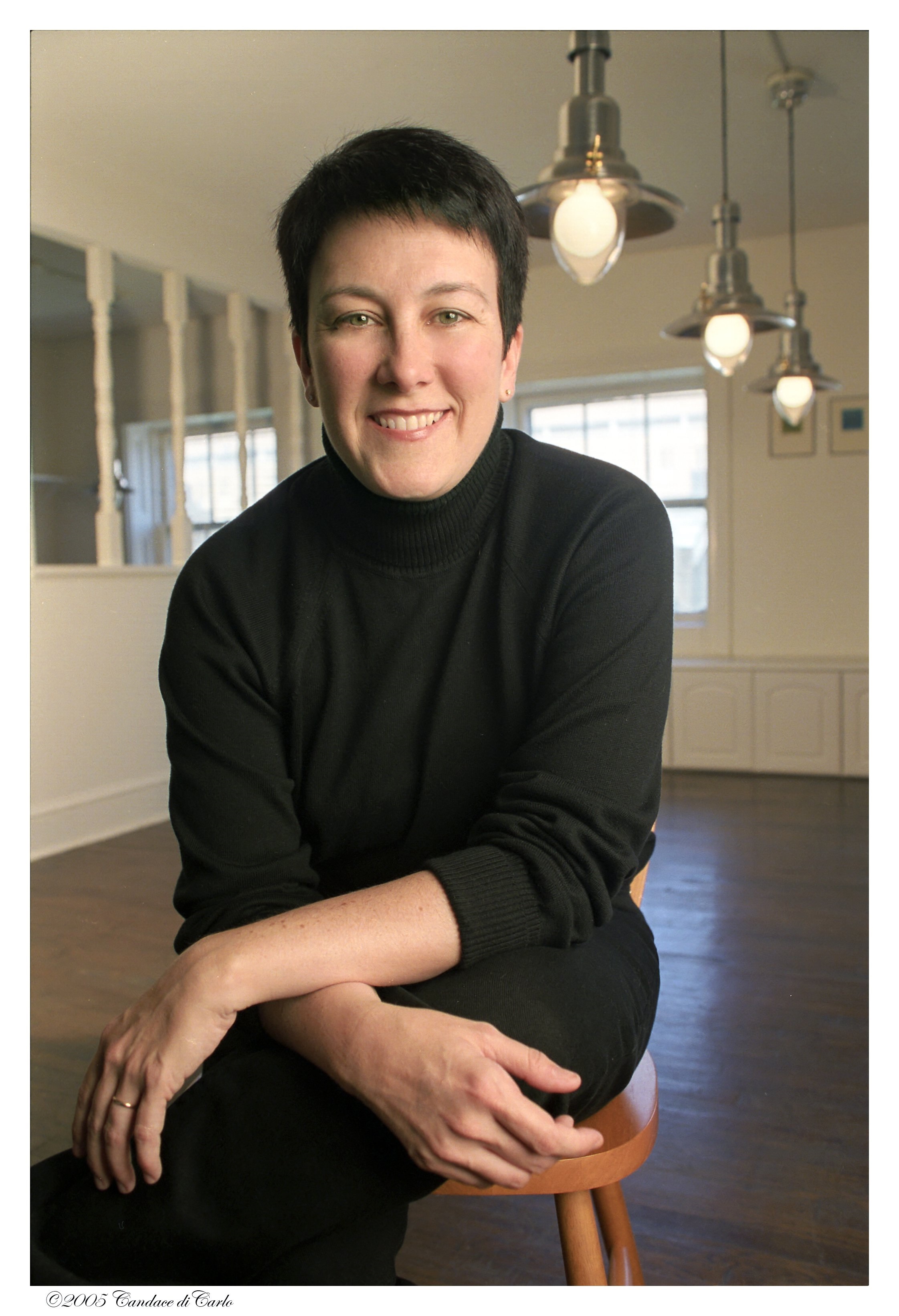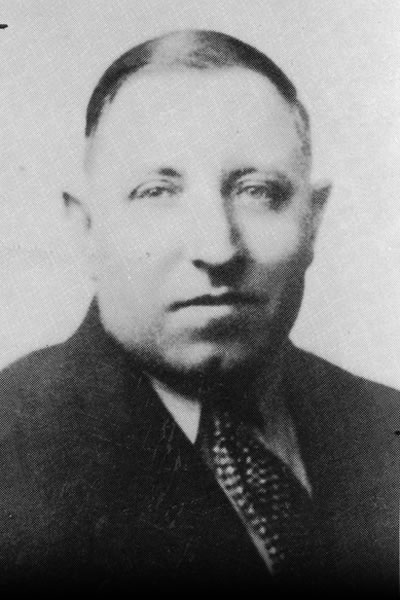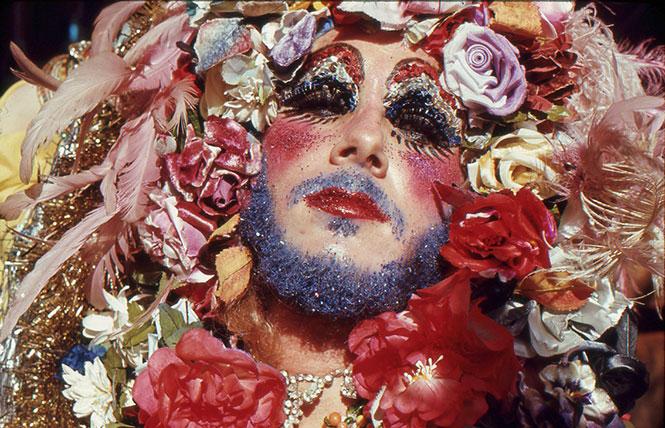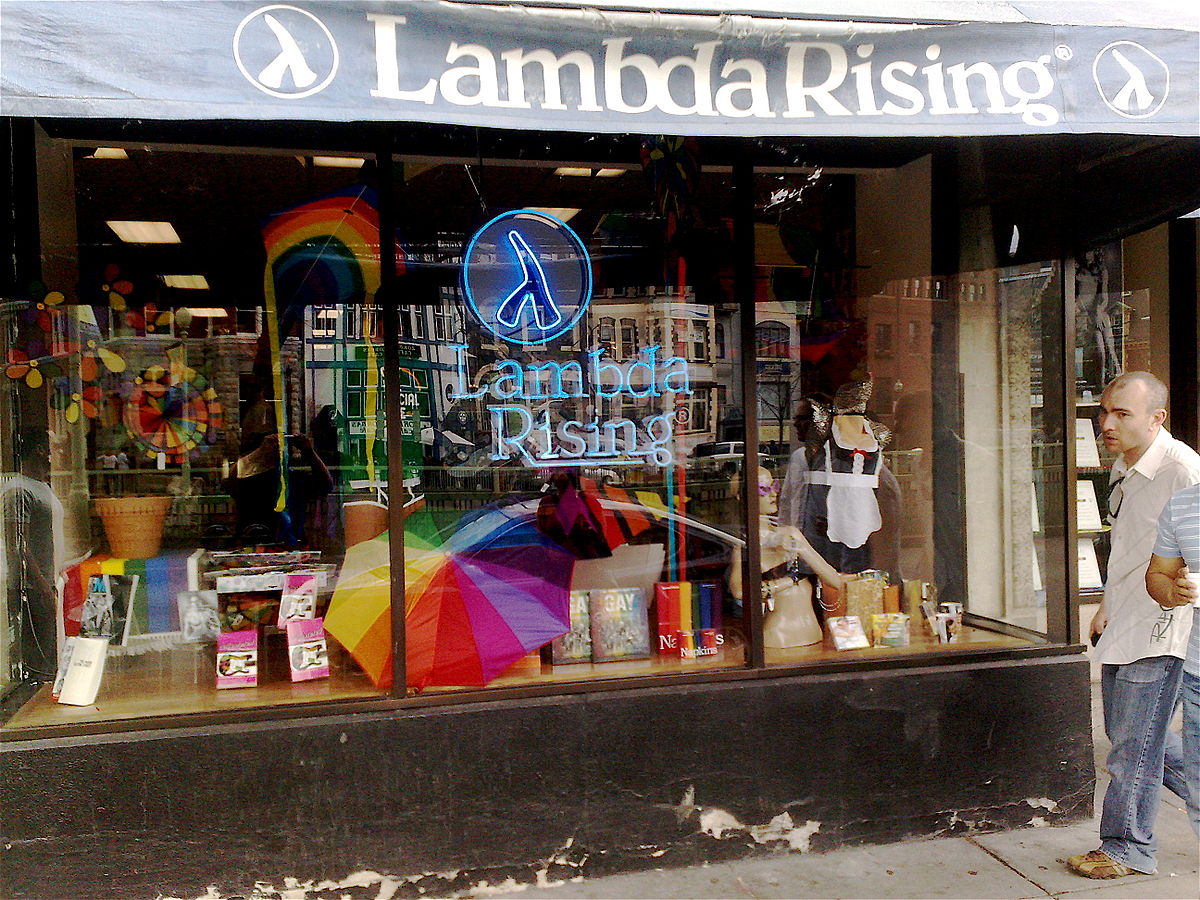December 31
SIMON WIESENTHAL was born on this date in the small Ukrainian town of Buczacz (d: 2005). Trained as an architectural engineer, Wiesenthal survived the Nazi concentration camps losing over eighty members of his extended family and dedicated the rest of his life to seeking justice for all those who died by bringing Nazi war criminals to justice. He was later celebrated as a "Nazi-hunter" and portrayed by Laurence Olivier in "The Boys from Brazil," but for many years, as Cold War governments had forgotten about Nazi atrocities,
Wiesenthal was a veritable prophet in the wilderness, tirelessly working in the memory of all those who had died. He wrote a number of bestselling books including "Murders Among Us," "Justice, Not Vengeance," and "The Sunflower: On the Possibilities and Limits of Forgiveness." Through his efforts countless Nazi criminals stood trial. Without Wiesenthal's activity and vision, there would not have been war crimes hearings about Rwanda, Bosnia, or a permanent War Crimes tribunal in the Hague.
For the sake of this Gay Wisdom listserve, we would point out that Wiesenthal spoke for all those who had lost their lives and was an early outspoken activist for the thousands of homosexuals who died in the holocaust, pointing out that they had all been buried together in mass graves and should all be acknowledged. Wiesenthal died of natural causes in 2005 at the age 96.
Recent events remind us that we are still not out of the woods with respect to facsist politics and that we must all remain as vigilant as Wiesenthal.
JENNIFER HIGDON, an American composer and musician, was born on this date. She has received many awards including the 2010 Pulitzer Prize in Music for her Violin Concerto and the 2009 Grammy Award for Best Contemporary Classical Composition for her Percussion Concerto. Higdon was born in Brooklyn, but spent her first 10 years in Atlanta, Georgia, before moving to Tennessee. A largely self-taught flautist, she played in her high school's concert band and heard little classical music before her college years. She studied at Bowling Green and majored in flute performance.
Higdon teaches composition at the Curtis Institute where she holds the Milton L. Rock Chair in Compositional Studies. She has served as Composer-in-Residence with the Pittsburgh Symphony Orchestra, the Green Bay Symphony Orchestra, the Philadelphia Orchestra and the Fort Worth Symphony. Her musical style uses elements of traditional tonality and emphasizes interesting color combinations.
Higdon has received commissions from major symphonies including the Philadelphia Orchestra, the Cleveland Orchestra, the Chicago Symphony, the Atlanta Symphony, the National Symphony, the Minnesota Orchestra, the Pittsburgh Symphony, the Indianapolis Symphony, and the Dallas Symphony. blue cathedral, a one-movement tone poem dealing with the death of her brother from cancer, has quickly became one of the most performed modern orchestral works by a living American composer. It has been performed by more than 400 orchestras since its premiere in 2000. Her works have been recorded on more than four dozen CDs.
Higdon ihas written an opera based on Charles Frazier's 1997 novel, Cold Mountain. It was co-commissioned by The Santa Fe Opera and Opera Philadelphia and was premiered in Santa Fe in 2015. The libretto is written by Gene Scheer. It is Higdon's first opera. She is the most frequently performed living female composer according to the League of American Composers.
Higdon lives with her partner Cheryl Lawson in Philadelphia. They met in high school.
NEIL RAFFERTY is an American politician and current member of the Alabama House of Representatives, representing District 54. Winning his seat in the 2018 elections -- with 90% of the vote -- Rafferty assumed office on November 7, 2018. His term ends in November 2022. Representative Rafferty's is a member of the Democratic Party.
Rafferty is a former member of the United States Marine Corps and veteran of the Global War on Terrorism. Prior to his election to the Alabama House of Representatives, he worked as director of research and development for Birmingham AIDS Outreach. He resides in Birmingham, Alabama with his husband and former United States Marine, Michael Rudulph.
Born and raised in Birmingham, Rafferty first came out as gay in 1998. His early teens were filled with taunting and bullying that he described as a “daily gantlet.” He ran away from home. Before his junior year, looking for a fresh start, he transferred to a different school and did not reveal his sexual identity to classmates or teachers.
Mr. Rafferty attended the University of Alabama at Birmingham and joined the Marine Corps. While in the military, he avoided conversations about personal relationships, although he was already in a relationship with the man who would later become his husband. Only after leaving the Marines, just over a decade ago, did he become more open about his sexuality.
He spent nine years as an employee of Birmingham AIDS Outreach, working with young people and organizing H.I.V. testing events across the region. He ran for the Legislature in 2018, becoming only the second openly gay lawmaker elected in the state. The first, Patricia Todd, held the same Birmingham-area House seat before him. At her retirement, Ms. Todd said that she was most proud of the Alabama legislation that she had helped to block — measures she considered harmful to L.G.B.T.Q. constituents.
Mr. Rafferty, too, has spent his term in the Legislature working to prevent new restrictions on gay and transgender young people. He testified against such proposals. He connected constituents with Republican proponents of the measures, hoping to change the lawmakers’ minds by making them more comfortable with gay and transgender people and explaining the burdens they said such legislation would create. He brought medical experts and local organizers who provide support to L.G.B.T.Q. youth to the Capitol.
COMMODUS, Roman emperor, dies (b: 161); It’s New Year’s Eve and, after a long year’s journey, we are finally at the end of this year. To be on the safe side, why not stay home and watch old reruns of Guy Lombardo and spend a quiet evening in memory of the emperor Commodus, who called his exceptionally well-endowed cup-bearer “my donkey,” and was strangled by an over-enthusiastic wrestler named Narcissus on this day.
In 2000's Gladiator, Commodus was portrayed by Joaquin Phoenix in an Academy-Award-nominated performance. The historical character of Commodus is fictionalized in the movie as a deranged megalomaniac who murders Marcus Aurelius to usurp the throne. (There is no historical evidence suggesting Marcus Aurelius was murdered, much less by his own son.)
However the movie removes some of the most bizarre eccentricities of Commodus. The film's protagonist, Maximus Decimus Meridius (played by Russell Crowe) is loosely inspired by Narcissus, and was named so in a previous draft of the screenplay, but as in The Fall of the Roman Empire Commodus is killed in hand-to-hand combat. Commodus's death marked the end of the Nervan-Antonian and of the Pax Romana.
HENRY GERBER was among the earliest Gay Rights activists in America died on this date (b: 1892). He founded the nation’s first Gay organization and Gay publication. Born Joseph Henry Dittmer in Bavaria, Germany, Gerber moved to Chicago in 1913. From 1920 to 1923, he served in the U.S. Army during the occupation of Germany.
While in Germany, he was exposed to the homosexual emancipation movement. Gerber subscribed to Gay publications and was inspired by Magnus Hirschfeld, founder of a German homosexual and science advocacy organization. After returning to Chicago, Gerber founded the Society for Human Rights, which advocated for gays and lesbians. He published the organization’s newsletter, “Friends and Freedom.” Gerber limited membership in the Society for Human Rights to Gay men. Unknown to him, the vice president, Al Weininger, was married with children.
In 1925, Weininger’s wife reported the organization’s activities and it was shut down for moral turpitude. The Chicago police arrested Gerber and tried him three times. Although Gerber was found not guilty, the legal fees cost him his life savings and his job.
Gerber moved to New York City and reenlisted in the Army, where he served for 18 years. He led a correspondence club called Connections, which became a national network for gay men. Under a pen name, he wrote articles for various publications, arguing the case for gay rights. At 80, Gerber died in the U.S. Soldiers’ and Airmen’s Home in Washington, D.C. In 1992, he was inducted posthumously into the Chicago Gay and Lesbian Hall of Fame. In 2001, the Henry Gerber House was designated a Chicago landmark.
THE COCKETTES performed their first show at San Francisco’s Palace Theatre on this date. The troupe of male and female performers would make a lasting impact on fashion and drag. Singer Sylvester and movie actor Divine both performed with the The fame of the troupe grew, especially following a review from nationally-syndicated columnist Rex Reed. He reported that at the performance he attended, ‘bewildered police tried to control 2000 screaming, romping, bumping, flaunting, swishing, writhing, and staggering fans’ out front of the theatre.
“Nobody paid attention to the ‘Sold Out’ signs. They broke down the exit doors, and 300 friends of the Cockettes stormed in free… A floating carnival of freaks in sequins, feathers, skirts, mesh hose, cowboy hats, bras and pasties.” Among the great unwashed, Reed also noted the presence of celebrities and local society figures.
“Inside, 200 transvestites in the balconies screamed ‘We love you, Truman’, as Truman Capote entered in an orange sweater.”
Mrs Johnny Carson attended. And also guests from the wedding of Liza Minnelli’s stepmother to a multi-millionaire. However, the bride fled after hearing cops might raid the shindig.
“Dahling, I’ve seen The Cockettes already,” she purred as she clambered back into her limousine.
“The show began amid a colossal stampede of applause, screams and foot-stomping. Onto the stage trooped the Cockettes. A seething mass of lurching bodies in lavish hock-shop costumes, doing their thing for freedom.”
The show Reed reviewed, Tinsel Tarts in a Hot Coma, featured outlandish costuming, parody, song and dance. As a bonus – and no surprise given the troupe name – lots of cock – often glittered or rhinestoned.
A later review in the New York Daily News credited the Cockettes for their influence on fashion. It acclaimed their aesthetic as ‘a landmark, a visual treat’ already ‘filtering through to rock and roll’.
“Whenever you see a sequin too many, or a rhinestone where you didn’t expect one, a feather or some glitter, that’s the Cockettes’ influence.” (Sadly, bedazzled genitalia never really took off.)
But back in San Francisco, Rex Reed watched the original revue in delighted astonishment.
“Vetta Viper… delivered campy patter while doing a reverse strip, naked from the waist down, squeezing hairy legs into a floor-length formal [gown].”
A subsequent production featured “a prancing holocaust of cigarette holders, mascara, wedgies and see-thru chiffon gowns with sex organs exposed. A photographer from Vogue fell out of her seat.”
Meanwhile, around the theatre, “all sorts of unprintable sexual activity occurred on platforms, stairways and the bare floor.”
The Cockettes celebrated something Rex Reed described as ‘sexual role confusion’, a print-friendly rephrasing of the term ‘genderf_ck’.
In November 1971, 47 members of the Cockettes filed onto a jet plane in full drag and flew off for a New York season.
But the highly anticipated New York performances were a decided flop. Seduced by the free drugs and drinks on offer, the cast dedicated their free time to debauchery. Sylvester proved the exception, rehearsing every day with his band.
The opening night show attracted the likes of John Lennon and Yoko Ono, Liza Minnelli, Truman Capote, Gore Vidal and Angela Lansbury. Andy Warhol also turned up, along with Holly Woodlawn and Candy Darling. But the Cockettes were exhausted from partying. They also embraced spontaneity over rehearsed setpieces. But Big Apple audiences favoured the latter. The show was a disaster. Walk-outs began early and, by the finale, the theatre was almost empty.
The reviews were scathing, except for Sylvester. He subsequently distanced himself from the rest of the show.
“I apologize for this travesty that I’m associated with.”
The sex and nudity also proved a little much in a town still more staid than liberated California.
Tedious, offensive and unspeakably vulgar
Newsday clutched its pearls.
“Goldi Glitters dropped her gown to reveal male genitalia covered with glitter. Sweet Pam, one of four real girls, looks about nine and a half months pregnant. She sang ‘I Want Some Sugar In My Bowl’ while a bearded man performed what is legally described as an unnatural act on her.”
That’s an awful lot of words to say oral sex.
Lillian Roxon, who penned the Daily News review, took the outraged to task.
“A show came to New York this week that many people found tedious, offensive and unspeakably vulgar. I want to remind all those people so totally outraged of one thing. When Elvis Presley first did his act, his pelvic movements were considered lewd and vulgar. His greasy hair and sideburns were the targets for a million sniggers…
“Now, it’s all good clean family entertainment. Elvis, God bless him, made vulgarity respectable. ”
God bless Lillian, the Nostradamus of her age. She obviously gazed into her crystal ball and foresaw the future. That half a century hence, drag would become so banal that queens would call bingo at suburban bowls clubs.
The 2002 documentary The Cockettes is available for hire on Vimeo.
LAMBDA RISING, an LGBT bookstore that opened in 1974 in Washington D.C. closed its doors. Founded by Deacon Maccubbin in 1974 with 250 titles, it was known for its wide selection of books, ranging from queer theory and religion to erotica, as well as DVDs, music CDs and gifts.
The bookstore was originally located in 300 square feet at 1724 20th Street NW. It moved to a 900-square-foot retail space at 2001 S Street NW in 1979 and, in 1984, moved to a 4,800-square-foot space at 1625 Connecticut Avenue in Dupont Circle, one of Washington's popular gay and lesbian neighborhoods.
A second store in Baltimore, MD believed to be the only gay bookstore in Maryland, opened in 1984 and closed in the spring of 2008. Director John Waters declared that store's closing "very, very sad". Waters, a long-time customer, said the Baltimore shop was "a seriously good bookshop, with the added touch of porno. ... I always went in there to find books that I didn't know about and couldn't find anywhere else." A third store in Rehobeth Beach, Delawareopened in 1991 and closed in December 2009. A fourth store in Norfolk, VA, opened in 1996 and closed in June 2007.
In February 1975, Lambda Rising ran the world's first gay-oriented television commercial. It aired on WRC (owned by NBC) and WTOP (the local CBS affiliate, now WUSA). Also in 1975, Lambda Rising organized Gay Pride Day, the forerunner to Capital Pride, Washington's first annual gay pride celebration, and continued to host the event for the next four years before turning it over to a non-profit organization.
To support LGBT literature, Lambda Rising created the Lambda Book Report in 1987 and the annual Lambda Literary Award, also known as "the Lammys," in 1989. In 1996, Lambda Rising turned those projects over to the new non-profit Lambda Literary Foundation.
In February 2003, Lambda Rising bought the Oscar Wilde Bookshop, the country's first gay and lesbian bookstore, to save it from closing. The store was founded by Craig Rodwell in 1967 at 15 Mercer Street in Greenwich Village, later moving to the corner of Christopher and Gay Streets in Manhattan. After working with the New York staff staff for three years and getting the store on solid financial footing, Lambda Rising sold the store to the long-time manager in order to return the store to local control. In December 2009, Maccubbin announced that Lambda Rising's two stores would close by January 2010.
In his statement, Maccubbin said, "The phrase 'mission accomplished' has gotten a bad rap in recent years, but in this case, it certainly applies…"When we set out to establish Lambda Rising in 1974, it was intended as a demonstration of the demand for gay and lesbian literature. We thought... we could encourage the writing and publishing of LGBT books, and sooner or later other bookstores would put those books on their own shelves and there would be less need for a specifically gay and lesbian bookstore. Today, thirty-five years later, nearly every general bookstore carries LGBT books."
The store closed its doors on December 31, 2010.
Hogmanay in Scotland; The roots of Hogmanay reach back to the celebration of the winter solstice among the Norse, as well as incorporating customs from the Gaelic New Year's celebration of Samhain. In Europe, winter solstice evolved into the ancient celebration of Saturnalia, a great Roman winter festival, where people celebrated completely free of restraint and inhibition. The Vikings celebrated Yule, which later contributed to the Twelve Days of Christmas, or the "Daft Days" (really) as they were sometimes called in Scotland. The winter festival went underground with the Protestant Reformation and ensuing years, but re-emerged near the end of the 17th century.
In addition to enormous torchlit processions for Hogmanay, Scots kick off the New Year with the tradition of first-footing. Traditionally, the luckiest “first foot” to cross the door after the stroke of midnight should be a dark-haired male (perhaps in response to those blond Viking invaders). Today, friends or family who cross the door can bring luck.
Subscribe to Gay Wisdom
Would you like to have Today in Gay History (aka Gay Wisdom) sent to you daily?

